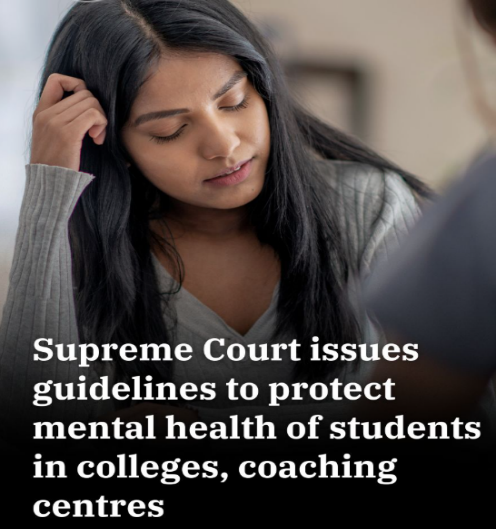PREVIOUS
SC guidelines on students' mental health
July 30 , 2025
16 hrs 0 min
73
0
- The Supreme Court issued 15 binding interim guidelines under Article 32 and Article 141 to tackle rising student suicides and mental health crises.
- This was held during the Sukdeb Saha vs. State of Andhra Pradesh case.
- The Court called the crisis a sign of “structural malaise” in India’s education system.
- Over 13,000 student suicides occurred in 2022, with 2,200 linked to exam failure (National Crime Records Bureau).
- All educational institutions must implement a Mental Health Policy aligned with national programs like UMMEED (Understand, Motivate, Manage, Empathize, Empower, Develop), MANODARPAN (Mental Health Initiative by Ministry of Education), and the National Suicide Prevention Strategy.
- A Mandatory appointment will be at least one trained mental health counsellor in institutions with 100+ students.
- Practices like batch segregation, public shaming, and unrealistic academic targets are strictly prohibited.
- Helplines including Tele-MANAS (Tele Mental Health Assistance and Networking Across States) must be visibly displayed in campuses and hostels.
- Biannual mental health training for all staff on crisis response and early warning signs is compulsory.
- Institutions must ensure inclusive, non-discriminatory support for SC, ST, OBC, EWS, LGBTQ+ and disabled students.
- A confidential system must exist for reporting the sexual assault, ragging, and identity-based discrimination with immediate psychosocial help.
- The Mental health is part of the constitutional right to life under Article 21, which includes dignity and autonomy, as upheld in Shatrughan Chauhan v. Union of India.

Leave a Reply
Your Comment is awaiting moderation.


